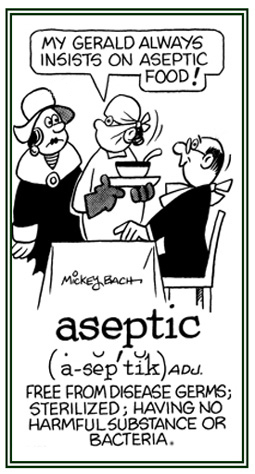-ic
(Greek: a suffix; pertaining to; of the nature of, like; in chemistry, it denotes a higher valence of the element than is expressed by -ous)
2. Sensitive to or appreciative of art or beauty: "They had an artistic temperament even as children."
3. Showing imagination and skill; such as, an artistic design.
2. A person who renounces material comforts and leads a life of austere self-discipline; especially, as an act of religious devotion: There have been ascetics who have devoted their lives to God with prayer, fasting, and consecration or solemn commitment to helping those who were in need of spiritual and physical help.
3. Etymology: used since about 1646, from Greek asketikos, "rigorously self-disciplined", from asketes, "monk, hermit"; from askein, "to exercise, to train"; originally, "to train for athletic competition, to practice gymnastics, to exercise".
The noun meaning "one of the early Christians who retired to the desert to live solitary lives of meditation and prayer" is from 1673.
Ascetic actually goes back to Greek asketes, "an athlete in training". The Greek word for athletic training is askesis, and from it we get ascesis, which means "rigorous self-discipline" or "training".
Very much the same thing is denoted by "asceticism", which was first used in English by Sir Thomas Browne in 1646.

Go to this Word A Day Revisited Index
so you can see more of Mickey Bach's cartoons.
2. An accumulation of fluid serous fluid in the peritoneal cavity, causing abdominal swelling.
2. The absence of harmful microorganisms: Hospitals are expected to make every effort to keep operating rooms aseptic so patients won’t be contaminated with infectious germs during an operation.

Go to this Word A Day Revisited Index
so you can see more of Mickey Bach's cartoons.
Asplenic people have lost an organ that performs important functions related to both the immune and the cardiovascular systems.
2. Having a slender, lightly muscled physique.
An astigmatic condition is a disorder of vision; usually, due to misshapen corneas in the eyes such that light does not focus correctly on the retinas and so a person can only see blurred images.


